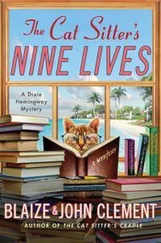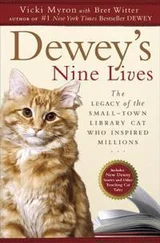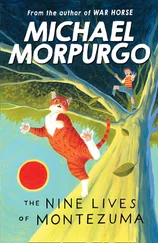Finally, just beyond the sign for Barracks Road Stables, she saw a new Explorer pulled off the road on the shoulder. She parked behind it, quickly got out. The young man who had pulled over and had made the 911 call got out of his old Corolla. He turned up his coat collar.
Cooper nodded to him, and he stayed behind her as she opened the door to the vehicle in front of his ancient Corolla.
“He was dead when I pulled over, ma’am.”
Cooper noted that Pete Vavilov—dead in the driver’s seat—wore his seatbelt. No blood. She closed the door, checked the skid marks that were rapidly fading. He just slid off the road. She also noticed another fading pair of tracks behind the Explorer.
“Did you see anyone else?”
“No, ma’am—I mean, no, Officer.”
She looked around. No electric lights anywhere. The power died again.
“Let me take your information so you can go home. It’s an evil night. If I have more questions, I’ll find you. I know I will have some questions.”
He handed her his driver’s license. She wrote down his stats.
“You’ve got about nine miles of bad road.” She used the old expression. “Think that car can make it?”
“I hope so.”
“Here.” She handed him her card. “That’s my cell. If you get stuck, call me. I’ll get you home in my SUV. Might take a while because we’ll need to take care of this, but if I can’t leave, I’ll send another officer.”
“Thank you.” He opened his squeaky car door, grateful to be inside, and slowly drove away.
The temperature kept dropping, but Cooper wanted to investigate as much as she could. Already, the tracks of the young man’s Corolla and whoever pulled up behind the Explorer were indistinguishable now.
She opened the door again. Felt Pete’s neck. She knew he was dead, but if she felt his temperature, she’d have an idea of how long he’d been there. Not very long. Then she noticed that his right arm and hand hung down over the center console. The interior of the Explorer was black, otherwise she might have noticed this bizarre fact right away.
Pete Vavilov was missing his index and middle fingers.


Sunday, December 8, celebrated the Feast of the Immaculate Conception of the Blessed Virgin Mary. The Very Reverend Herbert Jones preached one of his famously rousing sermons. St. Luke’s somewhat strayed from the Lutheran dogma that avoided saint’s days. Reverend Jones felt those who had come before—leading exemplary lives, often lives of great sacrifice—should be remembered, whether Lutheran or Episcopalian, Baptist or Hindu. Anyway, so many saints suffered so exquisitely before the Catholic Church cracked open, it seemed churlish to Reverend Jones not to remember their holy devotion.
Harry, next to Fair, sat in a front pew in front of the lectern. She loved her pastor as a man, and she loved him as a servant of the Church.
His words on this day about the struggle of religion to honor and respect women struck a chord with her. Wisely, Reverend Jones did not dwell on the Immaculate Conception itself, for December 8 was the celebration of the conception of Mary, not the baby Jesus. How many Immaculate Conceptions can one have?
This thought occurred to Harry, followed by another in which she wondered how powerful men in the past wrote off outside children by a twist of logic—maybe not going so far as to claim an Immaculate Conception but some other twist of logic to wiggle out of an embarrassing situation.
As far as organized religion, Harry was devout in her own way, though she could never quite buy the whole bag of beans. For that matter, neither did many of her generation, among them her dear friends. They drew comfort and strength from their churches but shied away from dogma.
After the service, Reverend Jones stood at the rear of one wide church aisle to shake hands with the departing congregation. Waiting in the last pew and observing the passersby in all their Sunday finery were his Lutheran cats, Elocution, Cazenovia, and Lucy Fur.
“Good sermon. Poppy’s voice just fills the church.” Cazenovia had nestled next to Reverend Jones as he’d struggled to write the sermon. She felt a big compliment was deserved.
“Poppy always tries to find a good balance. He was one of the first in the county to welcome female reverends. ’Course, the Episcopalians sent an ordained woman here as soon as they were accepted and Poppy personally greeted her. He thinks we all stand before God, even animals,” said Lucy Fur.
“Yes,” Elocution agreed, and while she loved Reverend Jones, Elo harbored feline suspicion about organized religions. She kept them to herself.
“Should, but he’s talking to humans. They only want to hear about themselves, not the cat who kept mice away from the cradle or about any of us, really,” Cazenovia shrewdly commented.
“He slips something in about animals now and then.” Lucy Fur loved the Reverend.
Unaware of the kitty commentary, Harry and Fair shook Reverend Jones’s hand, thanked him for his thoughts, and then walked into the foyer. Light from the huge floor-to-ceiling handblown windows flooded the room.
Slipping her arms into her coat held by her husband, Harry glanced out one of the windows. “They’re early.” There was still unloading to be done. “ ’Tis the season of charitable projects.”
Fair, seeing the few cars that he recognized, said, “You go to the meeting room, honey. I’ll round up some of the boys and we’ll knock this out in no time.”
Harry stepped outside, the cold air bracing. She hurried down the beautiful stone arcade built right after the Revolutionary War to a two-story stone building at the end of this arcade. St. Luke’s was built around a quad, with the back part open. Three sides had arcades, the church smack in the middle of the longest arcade. Two-story buildings anchored each end. The rear of all buildings looked into the quad. Front windows viewed the slightly rolling lawn at the front. The windows looking directly out the rear had an unbroken view down to the lovely old graveyard bound by a stone wall, which was the same stone as the buildings.
The trees, bushes, and plantings made over the centuries added to this spot’s tranquility. Even with everything covered in snow, St. Luke’s beckoned in the pale winter light.
Harry reached Jessica Hexham’s car. Following Harry on foot were Susan, BoomBoom, and Alicia. A bit farther back came Fair, with Ned and two other younger male parishioners.
The driveway to the rear of the meeting room building had been plowed. As Harry was in charge of the buildings and grounds, she always made sure everything was properly plowed in the winter. In spring she planted, she mowed in summer, and she raked in the fall. She knew the grounds and the condition of the buildings almost as intimately as the men who’d built St. Luke’s more than two hundred years ago.
Brian Hexham drove their SUV. As everyone wore their church clothes, they stepped gingerly on the plowed macadam. Ice could be invisible.
Fair motioned for the two other cars and one truck to park next to the Hexhams, then he and the men began unloading box after box. Harry, Susan, BoomBoom, and Alicia carried the lighter ones, not because they couldn’t handle the heavy ones—three of the four women did farm chores—but because all were in heels.
Once inside the church’s meeting room, the tables were labeled: clothes, shoes, outerwear, scarves and mittens, china and glassware, canned food, toys and video games, pet treats , and miscellaneous .
Читать дальше














